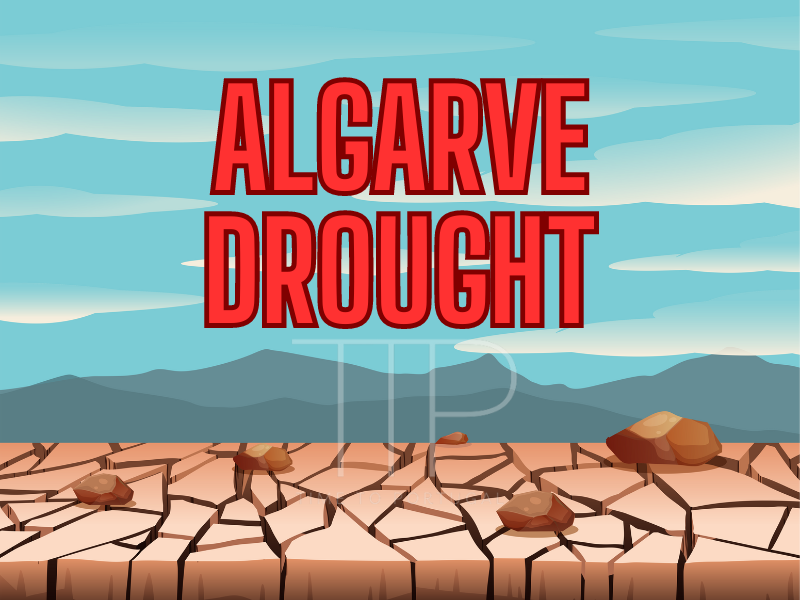Algarvians are prepared to cut their water consumption by 15%, a measure decided by the government to combat the extreme drought and allow the precious liquid to flow through the taps after August.
“What’s on the table, it’s been proposed to the hoteliers with a lot of responsibility, is to reduce water consumption, and that’s the effort we’re going to make, and we believe we’re going to have a summer without affecting tourism at all,” João Soares, director of a hotel in Quarteira, told Lusa.
All those responsible and entities with an interest in the sector want, above all, to preserve the image and quality of the Algarve destination for tourism, which is currently the region’s most important industry.
Restaurants and the like also want to contribute to reducing water consumption, but sometimes it’s difficult to convince the staff of some establishments of this need, one businesswoman told Lusa.
“I don’t work here alone. I try to tell my employees not to use so much water, we can’t always be on top of them, but we’ll try to make an effort,” said Manuela Henriques, who owns a restaurant on the Estrada Nacional 125.
The businesswoman is convinced that foreign tourists are “more aware of these problems” than locals, and argues that public officials should promote information campaigns calling for water saving.
Another measure that should be announced in this area is the creation of a ‘green seal’ to certify that a given hotel unit complies with sustainability rules and is making an effort to reduce water consumption, as a way of combating the extreme drought caused by climate change.
Most of the people contacted by the Lusa agency are willing to make the effort, although some are less optimistic about its possible results.
“If we have no other choice, we’ll have to do it, but it’s not easy. Because people with the salaries they have already pay a lot of attention to water. We could do a bit more, but it’s not easy,” said a passer-by on the Quarteira promenade.
According to her, it will also be difficult to convince the many tourists that the southernmost region receives about the importance of reducing water consumption: “I don’t think tourists come on vacation thinking about saving water, because they’ll say they don’t pay for it,” she said.
Even so, she said that she will make an effort and that, if necessary, instead of taking a shower every day, people will have to do it more spaced out.
Some young people from the Algarve heard by Lusa seem to be more aware of the problem and have even come up with ideas to help reduce water consumption.
“Perhaps changing some behaviors. For example, not having the tap on all the time when I’m brushing my teeth or even turning off the shower when I’m using the shampoo,” said Ana Rita Vieira.
The young woman is convinced, even so, that for some it will be difficult to spend less water in a “very consumerist” age, but concludes that, “if everyone makes an effort, we’ll manage”.
Next to her, a friend, Elvira Oblyvana, also considers it “difficult” to change consumer attitudes, but assures that she will make an effort, saying that she will spend less water “removing make-up” from her face and reducing the time it takes to shower.
“I think we can easily save 15% of water,” said Lucina Tomé, who understands why the authorities are calling for savings in consumption, an appeal she says her father has also made.
Also strolling along Quarteira’s famous promenade, pensioner Madalena Diogo said that everyone’s attitude will depend on their “conscience”.
“In government terms, perhaps measures should have been taken earlier, because this was foreseen. Now we’ll see what everyone is capable of doing,” she said.
The government has announced that the Algarve will see water cuts this year of 25% in agriculture and 15% in the urban sector, which includes tourism, in order to preserve water reserves and cope with the drought.
The Minister for the Environment and Climate Action, Duarte Cordeiro, said that a total of 46 measures are to be included in a Council of Ministers resolution that will be approved shortly to ensure that the objective is met.
“We’re closing in on a package of measures […] that we’re going to take in the short term. Some of them have to do with flow reducers, namely in showers, in sanitary facilities,” among others, said João Soares, adding that the measures will be taken “without obviously harming customers”.
The reduction in flow pressure, the suspension of second meters and specific measures for the tourism sector were put forward by Duarte Cordeiro, and it is expected that the full set of measures will be known in the coming days.
According to Duarte Cordeiro, the measures are mandatory given the current situation in the Algarve, where the capacity of the reservoirs is at 25%, compared to 45% last year at the same time.
The technicians are convinced that, if nothing is done, the region will only have water until the end of August and that the package of measures will make it possible to prolong its existence until the end of the year.
Related article: Algarve drought: Government to cut water for agriculture by up to 50% and


[…] Related article: Algarve residents willing to make the water-saving effort […]
[…] Related: Algarve residents willing to make the water-saving effort […]